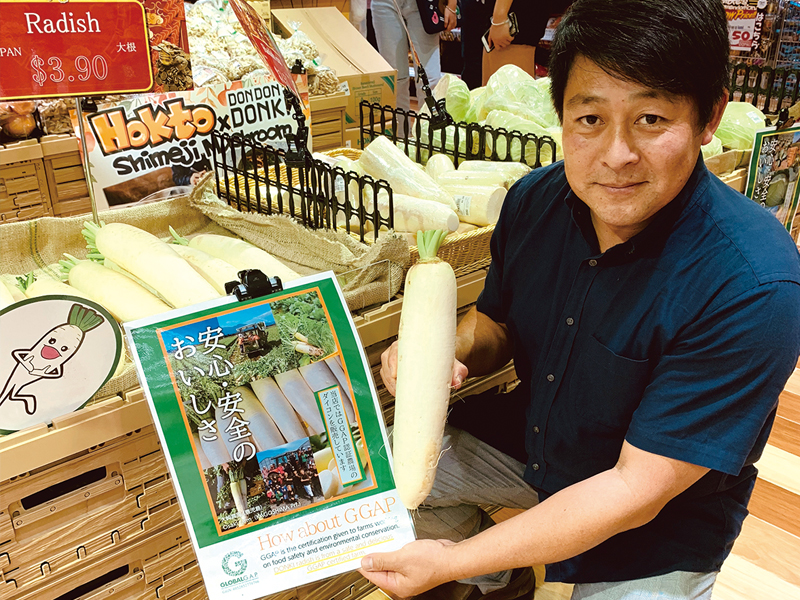Cultivation and shipping
of daikon radish
01
Osaki Farm's daikon radish
Osaki Farm's daikon radish, rich in essential trace minerals
Moderately pungent and high in sugar content
Radish is rich in amylase (diastase), a digestive enzyme. It is believed to improve indigestion, control stomach acidity, and prevent heartburn and lethargy.
It is also rich in vitamins such as vitamin K and vitamin C.
Osaki Farm’s daikon radishes, which are produced with particular attention to soil preparation (balanced soil development), contain zinc and copper, which are essential trace minerals that cannot be produced by the human body.
As for taste, it is characterized by moderate pungency and high sugar content and sweetness.
Osaki Farm’s daikon radishes, which are produced with particular attention to soil preparation (balanced soil development), contain zinc and copper, which are essential trace minerals that cannot be produced by the human body.
As for taste, it is characterized by moderate pungency and high sugar content and sweetness.
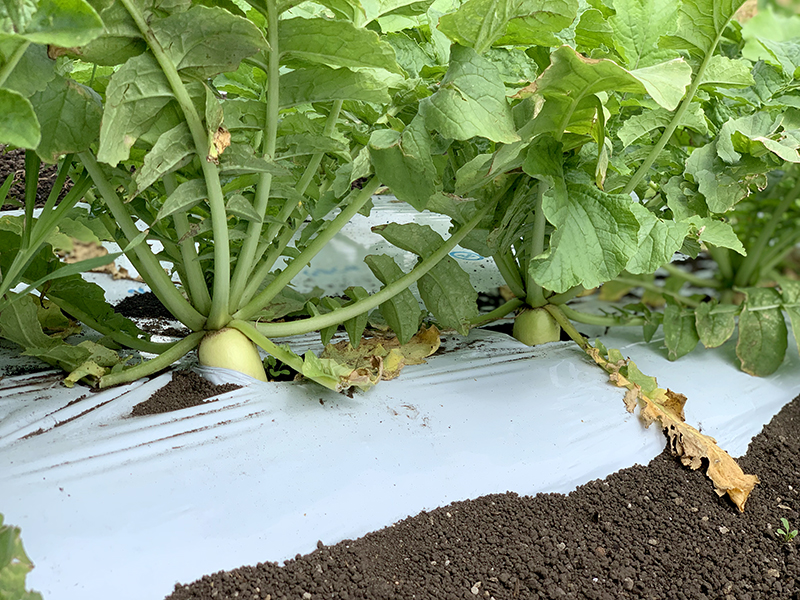
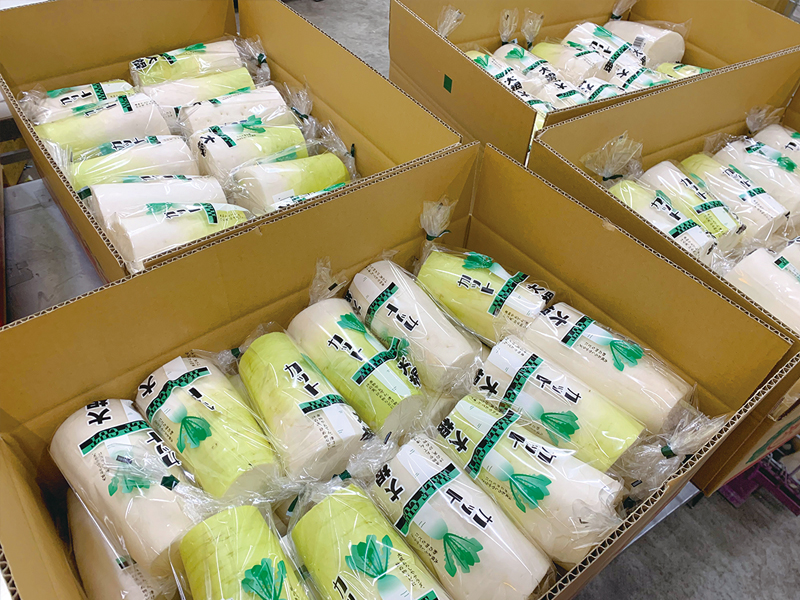
Our radishes are certified under [Global GAP/K-GAP
02
Radish Production Specifications
Item name
Daikon radish
Shipping time
October – June of the following year
Main shipping destinations
Kansai: 40% Chubu: 30% Kanto: 20% Others: 10
Planted area
8,120ha
Crop
Private farm:1,000t(Actual results for 2021)
Shipping Size
3L(8bottles)
2L(8bottles)
L(10bottles)
Cut radish(15kg)
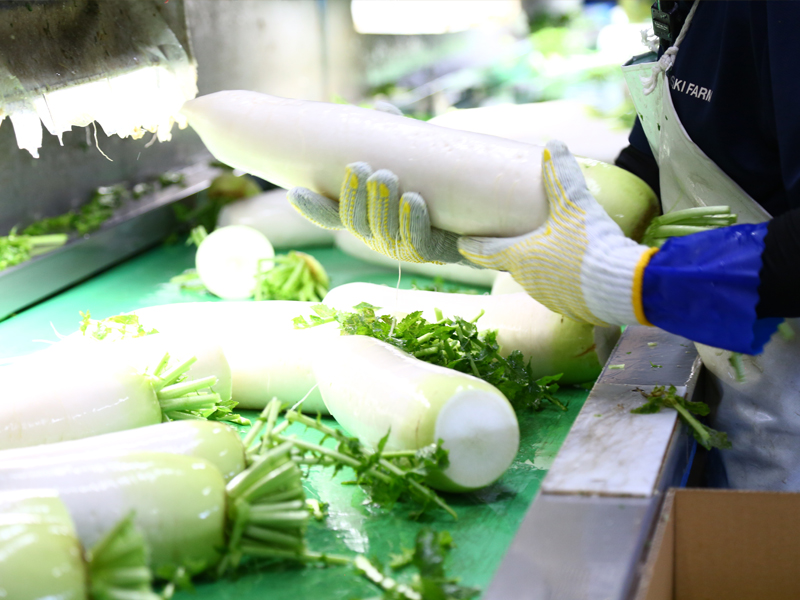
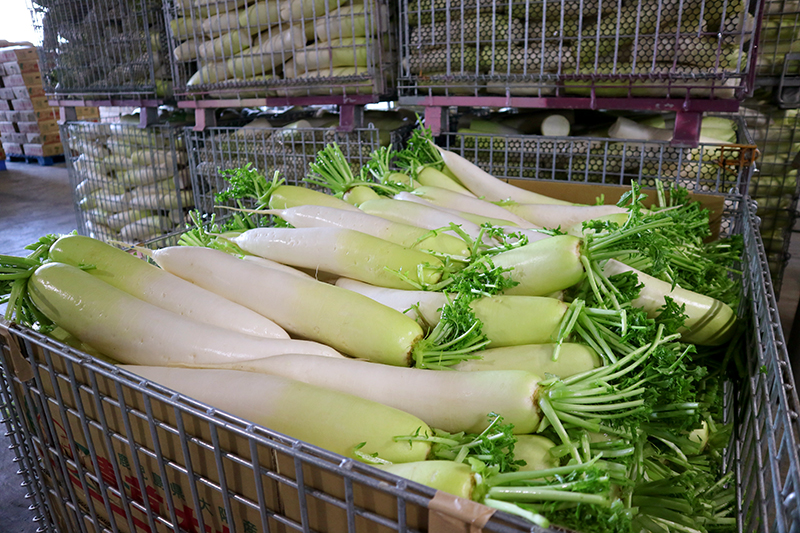
03
Growing and shipping daikon radishes
Radish Production
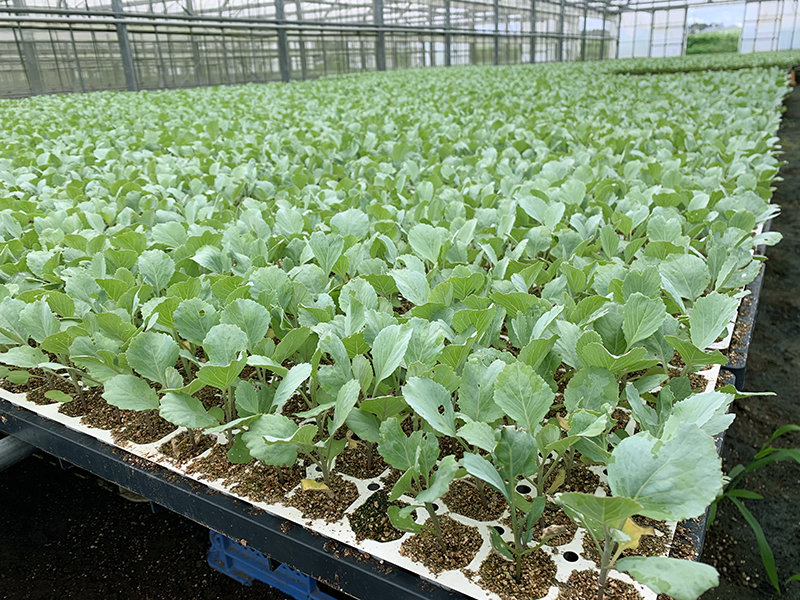
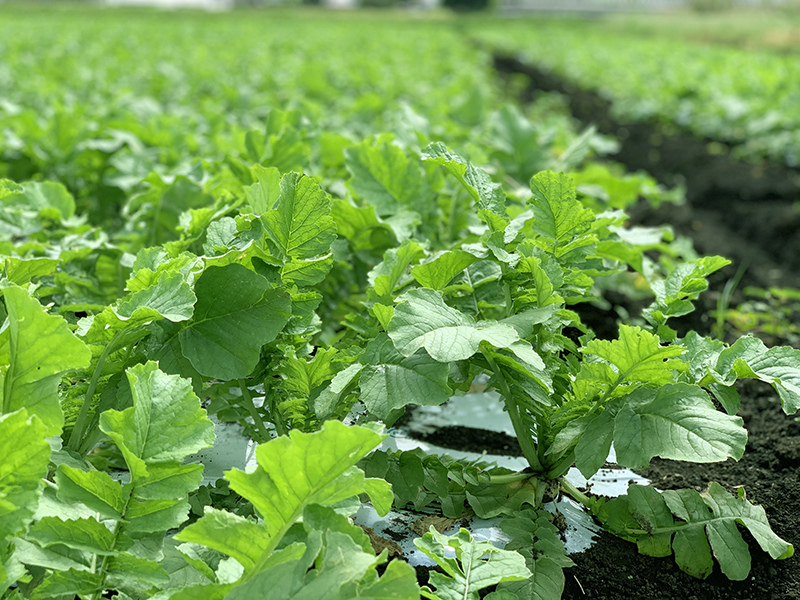
Sowing and seedling cultivation
We grow our own seeds from seed according to our shipping plan.

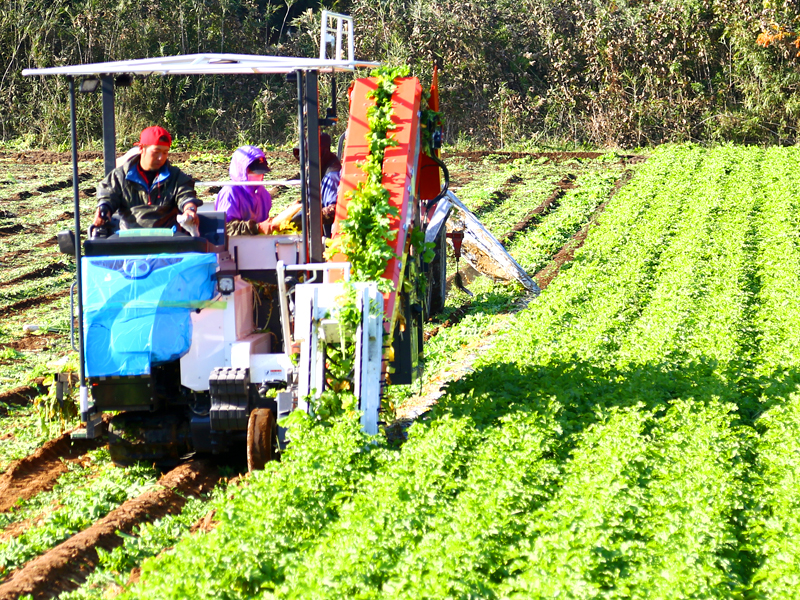
Growing and harvesting in the field
Growth and harvesting will be mechanized to ensure efficient harvesting operations against shipment targets.
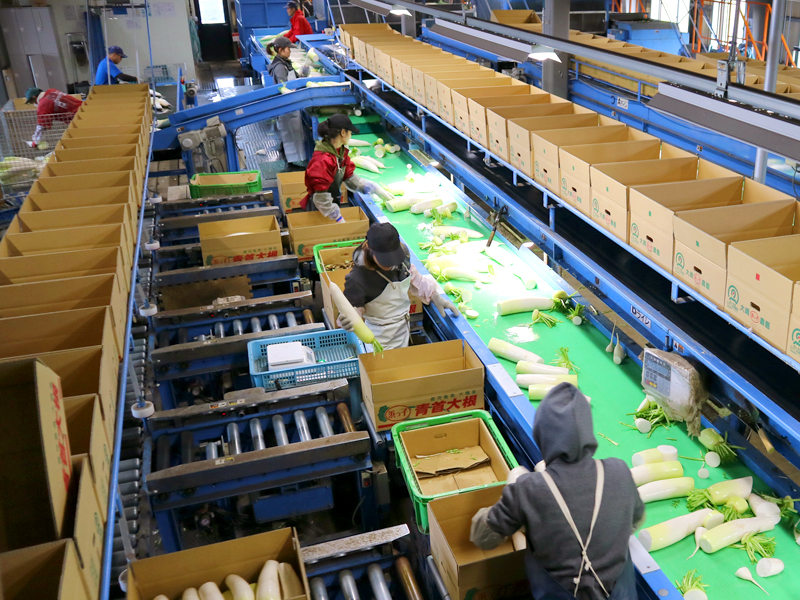
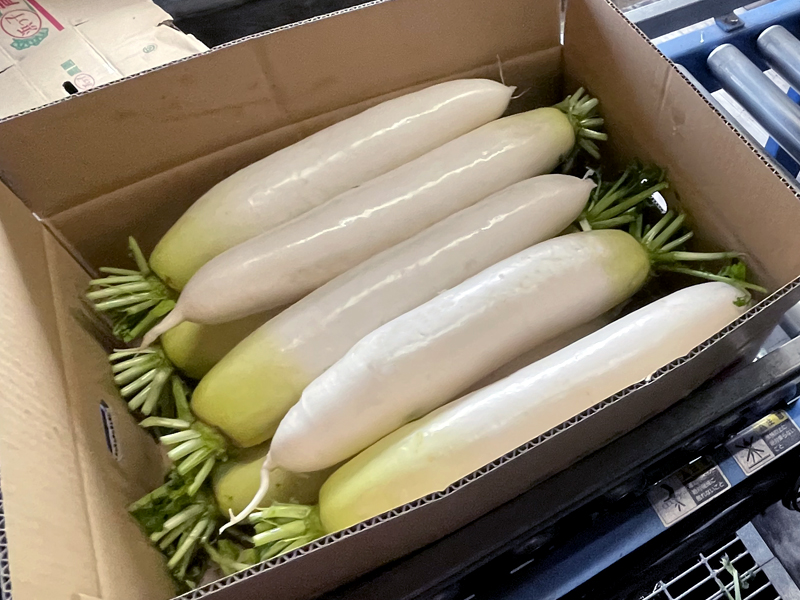
Sorting and packing
Harvested radishes are washed at the processing center and packed by size on the sorting line.
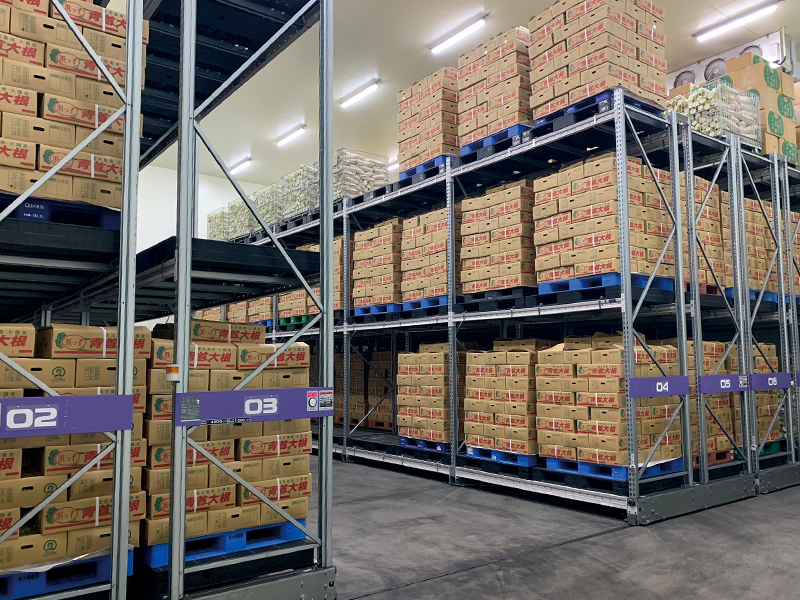
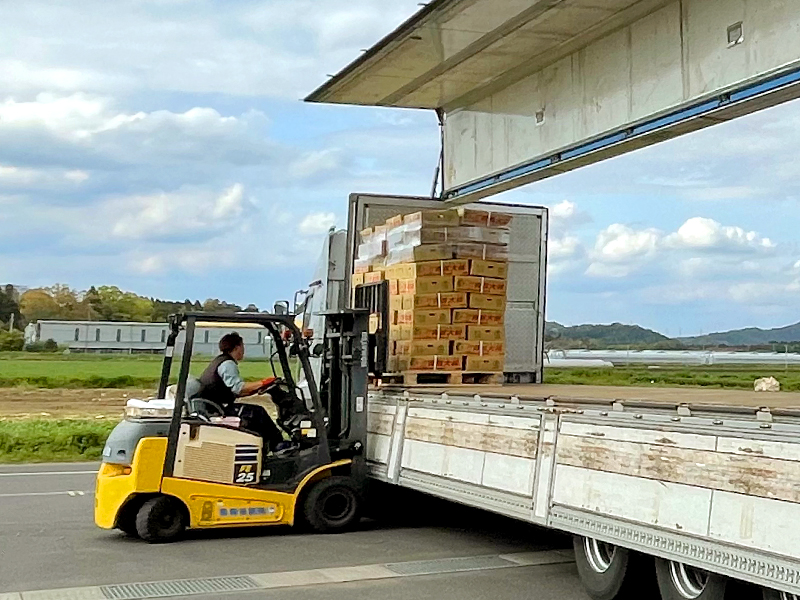
Warehousing and Shipping
We manage our storage warehouse, which is kept at low temperatures, and systematically ship the daikon radishes we receive orders for.
Growing environment for daikon radish
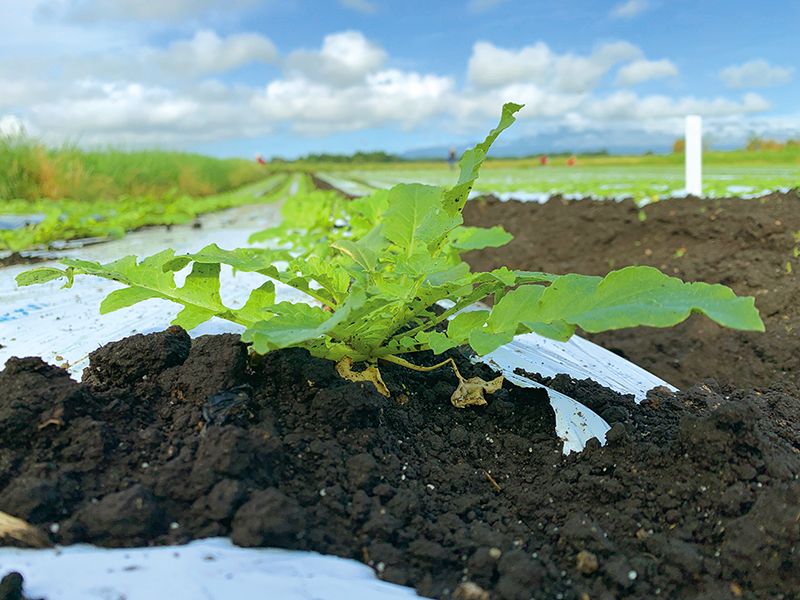
Keeping soil in good condition
We diagnose the soil once a year and apply a balanced amount of fertilizer nutrients suitable for daikon to the fields.
Daikon radish prefers slightly acidic to medieval soil, but Japanese soil with much rainfall tends to become acidic because calcium, potassium, magnesium, and other elements in the soil tend to flow easily.
We use a Ph meter to measure the acidity and adjust the soil acidity to alkaline or neutral to ensure a stable supply of daikon with good taste and to improve quality.
Daikon radish prefers slightly acidic to medieval soil, but Japanese soil with much rainfall tends to become acidic because calcium, potassium, magnesium, and other elements in the soil tend to flow easily.
We use a Ph meter to measure the acidity and adjust the soil acidity to alkaline or neutral to ensure a stable supply of daikon with good taste and to improve quality.
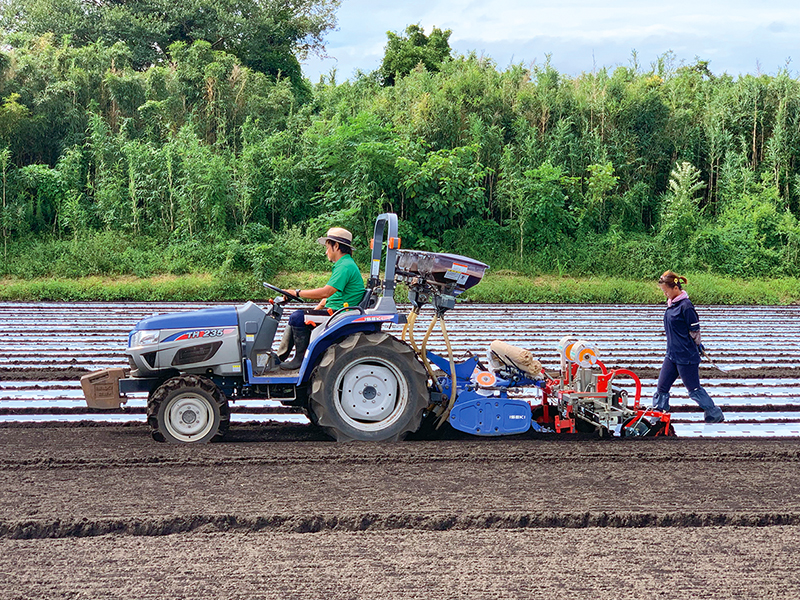
Environmental measures unique to Kagoshima
In Kagoshima, typhoons hit the area from summer to fall, when sowing begins, and the newly sprouted daikon radishes are sometimes damaged. As a countermeasure, we cover the entire field with windbreak nets to protect the newly sprouted radishes, which are very delicate and have shallow roots.
In the severe winter season, frost can occur, so we cover the daikon radishes with winter protection fabric to prevent them from being directly exposed to the cold air and to prevent frost damage.
In the severe winter season, frost can occur, so we cover the daikon radishes with winter protection fabric to prevent them from being directly exposed to the cold air and to prevent frost damage.
04
Expand sales channels through exports
Aiming to Further Expand Overseas Sales Channels
Not limited to the domestic market, in recent years we have been exporting daikon radishes to other countries in an effort to further expand our sales channels.
Our current export destinations are Singapore, Hong Kong, and Thailand.
In order to produce safe and secure agricultural products, we try to understand the quarantine status and pesticide residue standards of the countries to which we export. We also strive for stable quality and production by selecting varieties that can withstand weather fluctuations and are suitable for the growing season.
To strengthen our management foundation to further improve our cost competitiveness, we aim to improve the efficiency of our work processes by grasping the current status of field production costs and utilizing accumulated past data to forecast harvest volume and work operations.
Our current export destinations are Singapore, Hong Kong, and Thailand.
In order to produce safe and secure agricultural products, we try to understand the quarantine status and pesticide residue standards of the countries to which we export. We also strive for stable quality and production by selecting varieties that can withstand weather fluctuations and are suitable for the growing season.
To strengthen our management foundation to further improve our cost competitiveness, we aim to improve the efficiency of our work processes by grasping the current status of field production costs and utilizing accumulated past data to forecast harvest volume and work operations.
